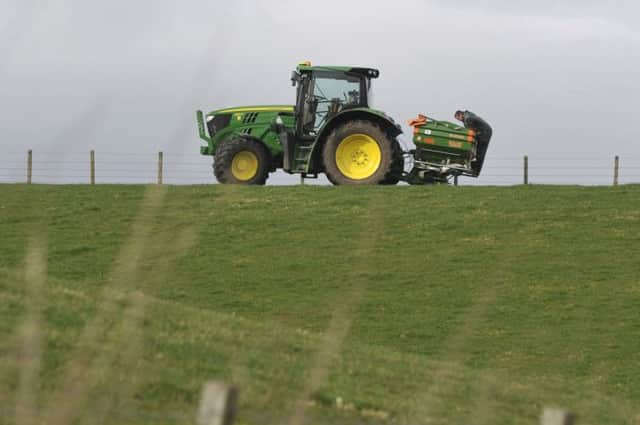£10m green gas plant will power thousands of homes


A new £10 million anaerobic digestion plant in the Borders will inject eco-friendly gas – made from locally grown grains – directly into the national supply network.
The plant will generate enough energy to supply up to 4,000 homes, reducing reliance on non-renewable natural gas.
Advertisement
Hide AdAdvertisement
Hide AdAn annual output of three million cubic metres of bio-methane is expected from 30,000 tonnes of wheat and rye.
As well as producing sustainable fuel, the scheme offers a new source of income for farmers usually reliant on fluctuating agricultural markets.
Growers are able to cultivate a fuel crop as part of the three-crop rotation required by the Common Agricultural Policy.
“The traditional difficulty for the industry is that you put in your man-hours and you pay all your costs but you never know what return you’re going to get until after the event – so it might give you a profit or you could make a loss,” said Iain MacKinnon, co-owner of St Boswell’s firm Charlesfield First, which is behind the scheme.
“The new plant means farmers will always get a cornerstone of revenue. It gives real stability to the agricultural market.”
Anaerobic digestion involves natural fermentation where plant and animal materials are broken down by micro-organisms in an airtight tank. The action releases a methane-rich gas that can be used to generate heat and power or injected into the supply “grid”.
It also cuts the amount of greenhouse gases that would be released into the atmosphere if the materials were left to decompose in landfill.
Business partner Trevor Jackson, whose family has been farming at Charlesfield for four generations, said he would like to see similar schemes being set up around the country.
Advertisement
Hide AdAdvertisement
Hide AdHe said: “It is giving farmers another stream of revenue alongside usual crops. Wheat prices have been dropping and costs for fuel and fertiliser have stayed high so farmers have been squeezed. If we can use this to start building a network of plants, it will save us using fossil fuels.”
Leftovers from the process are carbon dioxide and a digestate that is high in nutrients. That digestate will be returned to the farmers for use as an organic fertiliser while the carbon dioxide could potentially be used in fizzy drinks or fire extinguishers.
The developers revealed they are also planning an inovative gas vehicle fuel station that could cut emissions and toxic pollution on local roads.
Mr Jackson said: “Here we are using renewable fuel, a growing crop, which is using the natural energy from the sun and turning it into gas. As we develop the road transport fuel network, it will also save the environment from diesel particulates.”
The project has received backing from Iona Capital, a leading investor in UK biogas schemes.
The UK currently imports more than half of its gas, a figure expected to increase to 70 per cent by 2020